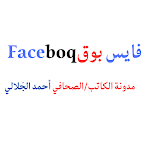Sex,
an intrinsic part of human existence, has been a subject of fascination, study,
and cultural significance throughout history. From ancient rituals to modern
scientific inquiry, the understanding of sex and sexuality has evolved
dramatically, reflecting broader changes in societal attitudes, cultural norms,
and scientific advancements. This article explores the history of sex and
sexology, tracing its development from early human societies to contemporary
times.
Ancient
Perspectives on Sex
In
ancient civilizations, sex was often intertwined with spirituality and societal
structure. In Mesopotamia, sex was viewed through a lens of divine and magical
significance. Temples often included sacred prostitution as part of religious
rituals, illustrating how sexuality was deeply connected to worship and
community life.
Ancient
Egyptians also had a complex understanding of sex, blending it with their religious
beliefs. They viewed sexuality as a natural and integral aspect of life,
represented in myths and symbols. The concept of fertility was paramount, with
gods and goddesses embodying various aspects of sex and reproduction.
Classical
Greece and Rome further advanced the discourse on sex. Greek philosophers like
Plato and Aristotle explored the nature of desire, love, and sexuality in their
writings. The Greeks practiced a relatively open attitude toward sex, reflected
in their art and literature. However, Roman attitudes were more pragmatic and
law-driven, with a focus on the regulation of sexual behavior within the bounds
of family and property.
Medieval
and Renaissance Views
The
Middle Ages brought a shift in attitudes toward sex, largely influenced by the
rise of Christianity in Europe. Sex became primarily associated with
procreation and was often subject to strict moral scrutiny. The Church's
teachings emphasized chastity and the sanctity of marriage, casting a shadow
over more open expressions of sexuality.
The
Renaissance, however, witnessed a renewed interest in humanism and
individualism, which extended to attitudes about sex. Thinkers and artists
began to challenge medieval norms, exploring human sexuality with a more
nuanced perspective. The period saw a resurgence of classical ideas about
sexuality, albeit often confined to more private or scholarly discussions.
The
Birth of Sexology
The
formal study of sex, known as sexology, began to take shape in the 19th
century. Early sexologists, like Richard von Krafft-Ebing and Havelock Ellis,
attempted to categorize and understand sexual behaviors and desires through a
scientific lens. Krafft-Ebing's work, "Psychopathia Sexualis," was
one of the first comprehensive studies of sexual deviations, although it often
pathologized non-normative sexual behaviors.
Sigmund
Freud's contributions to sexology were profound, introducing the idea that
sexuality was central to human psychology. Freud's theories on libido and
psychosexual development laid the groundwork for later psychological and
psychoanalytic approaches to understanding sex and desire.
The
20th Century and Beyond
The
20th century marked a significant turning point in the study of sex. Alfred
Kinsey's groundbreaking research in the 1940s and 1950s, documented in the
Kinsey Reports, provided a comprehensive view of sexual behavior in the United
States. Kinsey's work challenged prevailing norms and highlighted the diversity
of sexual practices and orientations.
The
sexual revolution of the 1960s and 1970s further transformed societal attitudes
toward sex. This period saw the emergence of new sexual norms, increased public
discussion about sexual health, and the beginning of formal sexual education
programs. The feminist movement and the LGBTQ+ rights movement also played
crucial roles in advocating for sexual freedom and equality.
Contemporary
sexology continues to expand our understanding of sex, incorporating insights
from various fields, including biology, psychology, sociology, and cultural
studies. Research has become more inclusive, addressing a wide range of sexual
orientations, identities, and practices. The development of comprehensive sex
education and the increased focus on sexual health and rights reflect a more
progressive and informed approach to sexuality.
Conclusion
The history of sex and sexology is a testament to humanity's evolving understanding of one of the most fundamental aspects of human life. From ancient spiritual practices to modern scientific inquiry, our exploration of sex and sexuality has mirrored broader societal changes and advancements. As we continue to study and discuss sex, the insights gained will not only deepen our understanding of human behavior but also inform and shape future attitudes and policies regarding sexual health and rights. The journey from ancient rituals to contemporary science highlights the enduring significance of sex in shaping human experience and knowledge.

